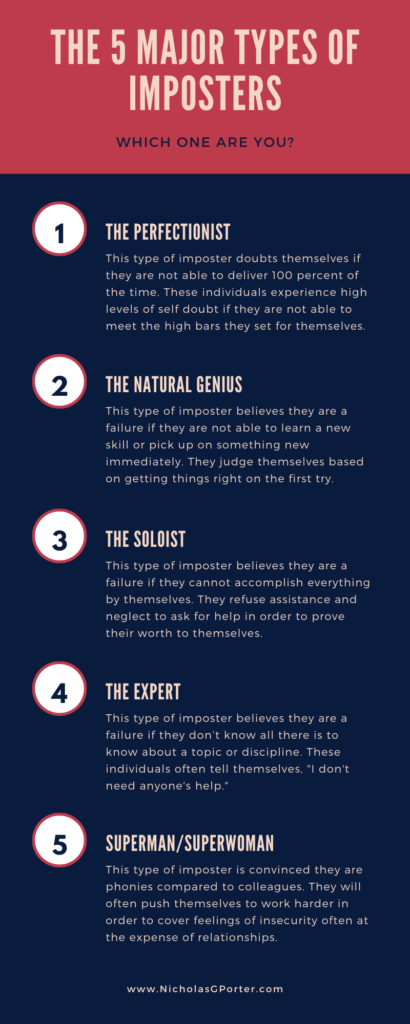Do you enjoy feeling like a failure? Yeah, I didn’t think so. But here’s the thing 一 you’re not alone. This phenomenon has been studied extensively. It’s called imposter syndrome. I’ll let Harvard Business Review take it from here:
Imposter syndrome can be defined as a collection of feelings of inadequacy that persist despite evident success. ‘Imposters’ suffer from chronic self-doubt and a sense of intellectual fraudulence that override any feelings of success or external proof of their competence. They seem unable to internalize their accomplishments, however successful they are in their field. High achieving, highly successful people often suffer, so imposter syndrome doesn’t equate with low self-esteem or a lack of self-confidence.
Feelings of inadequacy seem to impact the smartest and most accomplished people I know. In some cases, it has even made these individuals question if they should change careers. They simply cannot shake a nagging feeling that they will eventually be “discovered” as frauds.
I recently attended a workshop on the topic hosted by Micha Goebig. Take a look at the following statements from her presentation. Have you ever had these thoughts?
- “I just got lucky.”
- “I’m good at being in the right place at the right time.”
- “They will soon see that I’m a fraud.”
- “They made a mistake hiring me.”
- “They have low standards.”
- “It is because they like me.”
- “I have had a lot of help and have connections.”
“Okay, maybe I’ve had some of those thoughts,” you say. “But you don’t know me!” Yeah, about that. Have a look at the infographic below. I bet you will find yourself.

Here is What You Can Do About It
Are you finished freaking out? Good. Because not all hope is lost! According to Goebig, there are several steps you can take to overcome feelings brought on by imposter syndrome.
Break the Silence
Sometimes it only takes one conversation with someone you trust. Talk to someone about how you feel. You will likely discover the same person you confide in is experiencing the same emotions.
Separate Feelings From Facts
Take a hard look at your accomplishments. Ignore how you might “feel” about them. Instead, look at them with pure objectivity. Through this lens, you will likely see a pattern. It was you who earned that degree. You who secured that job. You who closed that deal or finished that project. Start believing the facts right in front of you!
Recognize Your Expertise and Abilities
Ask people you trust what they think of you. Yes, this will require courage! Those closest to you will care enough to tell the truth. Ask them how they view your skills and abilities. Now, take that feedback and create a resume or LinkedIn profile for the person they described. The final step in this process? Realize that profile is of you!
Develop a New Response To Failure
There are two responses one can have to failure. You can either let it hold you back or turn it into a learning experience and an opportunity to improve. Consider those you know who seem to bounce back from almost anything. Take their cues and integrate them into your routine. Finally, realize that failure rarely results in the catastrophic results the mind tends to conjure.
Reward Yourself
Don’t ignore your accomplishments! Enjoy a meal at your favorite restaurant. Purchase that item of clothing you’ve been eyeing. Take that vacation. The key here is to acknowledge that the activity is a reward for your achievements. Otherwise, you risk feeling guilty about your indulgences and or might put them off altogether.
How do you deal with imposter syndrome?



